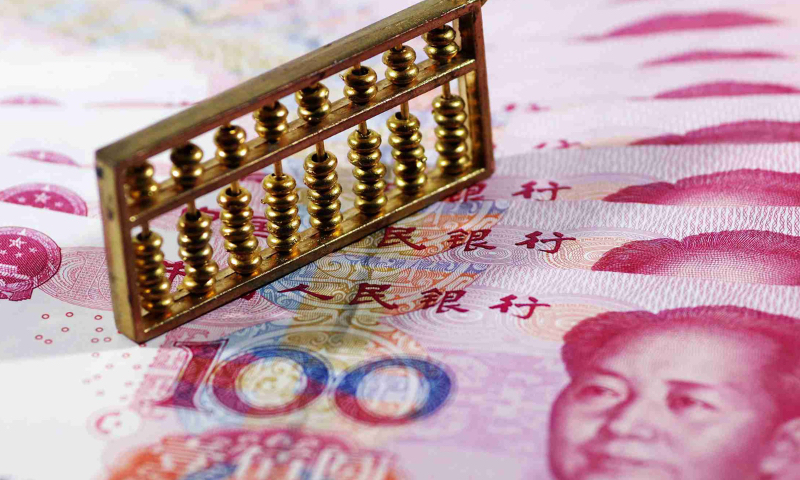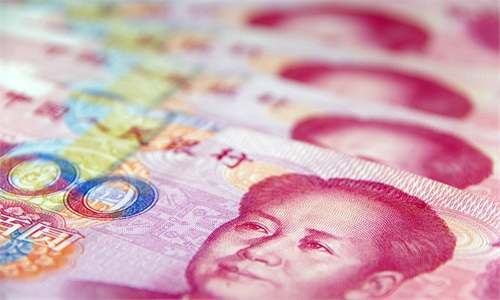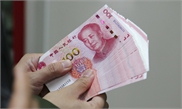Chinese yuan settlement exceeds euro among Russian SMEs amid stronger trade outlook

yuan Photo: CFP
Chinese yuan has surpassed the euro in the foreign exchange settlement of Russian small and medium-sized enterprises (SME), according to a survey conducted by Russia's PSB. It's a trend that business representatives and experts said will be further expanded as the bilateral trade volume between China and Russia is expected to hit a record high this year despite global challenges.
The yuan overtook the euro in foreign exchange settlements of SMEs with the proportion of 31 percent versus 28 percent, a situation that has also been confirmed by other large Russian banks, the PSB's survey read, Russian media outlet Izvestia reported on Monday.
From May to October, only 15 percent of Russian small and medium-sized enterprises used foreign exchange, and other enterprises only settled in rubles. Among the enterprises that settle in foreign currencies, 34 percent prefer to use the dollar, 31 percent prefer to use yuan, and 28 percent prefer to use Euro, the PSB's survey suggested.
This year, businesses paid in yuan 506 percent more than in 2020 and 294 percent more than in 2021, according to the report.
Wang Yu, a manager with the Russian Asian Union of Industrialists and Entrepreneurs, told the Global Times on Monday that their Russian clients have become accustomed to using Chinese yuan for cross-border settlement amid the booming trade flow.
From January to November, the China-Russian trade volume increased by 32 percent year-on-year, reaching $172.4 billion. The trade in energy sector has continued to play the momentum for growth.
With the expectation for the bilateral trade to exceed $200-billion benchmark this year, the yuan settlement will be further expanded, experts said.
The local currency settlement between China and Russia, which have been propped up amid stronger trade, have been further boosted this year, particularly under the shadow of Western sanctions against Russia, Han Lu, associate research fellow with the China Institute of International Studies, told the Global Times on Monday.
Chinese yuan is becoming a mainstream currency in bilateral trade, especially among SMEs. This is taking place against the backdrop that five major Russian banks were removed out of SWIFT under the West's sanction over Russia-Ukraine conflict.
The US and EU sanctions on Russia have restricted the use of dollars and euros, leading to an increased role of the yuan in the Russian economy.
For now, Russia's finance ministry has stopped buying dollars and euros on the Moscow exchange as US and European sanctions block half of Russia's reserves, according to media reports.
If next year budget revenues from the export of oil and gas exceed 8 trillion rubles, then the central bank will buy yuan, Reuters reported, citing an unnamed source.
Gao Qi, chief representative of the China Council for the Promotion of International Trade in Russia, told the Global Times on Monday that the suspension of business with Russia by many Western companies alongside the sanctions have caused many Russian companies to turn to other countries friendly to Russia, the most powerful of which is China.
Meanwhile, the increase in the proportion of yuan settlement in the Russian market is conducive to promoting the process of yuan internationalization.
The yuan is not yet an international convertible currency, and the local currency settlement between China and Russia is basically limited to bilateral trade between the two countries, Gao said.
"The internationalization of yuan is a systematic and long-term project...at the same time, it also depends on the level of internationalization of yuan for gaining a larger share in the Russian market," Gao said.


